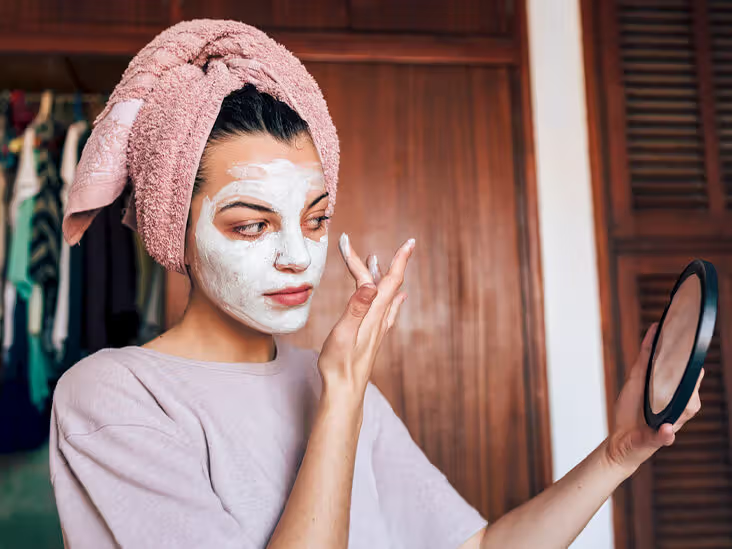Hormonal acne is a common skin condition that affects teens and adults alike, especially women. It often appears as deep, cystic bumps around the jawline, chin, and cheeks, and is typically linked to hormonal fluctuations such as menstruation, pregnancy, menopause, or conditions like polycystic ovary syndrome (PCOS). While conventional treatments include medications like birth control pills and retinoids, many people seek natural remedies for hormonal acne to avoid potential side effects. If you’re looking to heal your skin gently and effectively, this article outlines how to treat hormonal acne naturally.
What Causes Hormonal Acne?
Hormonal acne is primarily caused by an imbalance in hormones—especially androgens like testosterone. When androgen levels rise, oil (sebum) production increases, leading to clogged pores and the development of acne. Factors that can disrupt hormonal balance include:
- Menstrual cycles
- Stress
- Poor diet
- Lack of sleep
- Use of hormonal birth control
- Medical conditions like PCOS or thyroid disorders
Understanding the root cause is essential for creating a tailored, natural acne treatment plan.
1. Adjust Your Diet
Your diet plays a significant role in hormone regulation and skin health. To reduce hormonal breakouts naturally, consider these dietary changes:
Eat Anti-Inflammatory Foods
Focus on whole, nutrient-dense foods that help reduce inflammation and support hormone balance. These include:
- Leafy greens (spinach, kale)
- Fatty fish (salmon, sardines)
- Nuts and seeds (especially flax and chia seeds)
- Colorful fruits and vegetables
- Turmeric and ginger
Reduce Sugar and Refined Carbs
High-glycemic foods spike insulin levels, which can increase sebum production and trigger breakouts. Cut back on:
- White bread
- Sugary snacks
- Sodas and sweetened drinks
- Pasta made from white flour
Limit Dairy Intake
Dairy—especially skim milk—may increase insulin-like growth factor 1 (IGF-1), a hormone associated with acne development. Try dairy alternatives like almond, coconut, or oat milk.
2. Manage Stress Naturally
Stress increases cortisol, a hormone that can stimulate oil glands and worsen acne. Try incorporating the following natural stress-relief techniques into your daily routine:
- Meditation: Just 10 minutes of mindful breathing can lower cortisol levels.
- Yoga: Combines movement, breath, and relaxation to reduce stress.
- Herbal teas: Chamomile, lavender, and ashwagandha can help calm the nervous system.
- Journaling: Writing about your emotions can help you process stress more effectively.
Reducing stress naturally supports hormone balance and improves overall skin clarity.
3. Use Natural Topical Treatments
Many over-the-counter acne treatments contain harsh chemicals that can irritate sensitive skin. Instead, opt for natural acne-fighting ingredients:
Tea Tree Oil
A powerful antimicrobial and anti-inflammatory agent. Dilute with a carrier oil (like jojoba) and apply directly to blemishes.
Aloe Vera
Soothes irritated skin and promotes healing. Use pure aloe gel as a moisturizer or mask.
Also Read:
Natural Remedies for Dark Circles Under Eyes
Green Tea Extract
Contains polyphenols that reduce inflammation and sebum production. Look for skincare products that include green tea, or apply cooled green tea directly to the skin.
Witch Hazel
A natural astringent that can tighten pores and reduce oil. Use as a toner after cleansing.
4. Support Your Hormones With Natural Supplements
Certain vitamins and herbs can help support hormonal balance and improve skin health. Before starting any supplement regimen, consult a healthcare provider, especially if you have a medical condition or take prescription medications.
Zinc
Reduces inflammation, supports immune function, and helps regulate oil production. Zinc supplements or foods like pumpkin seeds and lentils are beneficial.
Vitamin D
Low levels of vitamin D have been linked to acne. Sun exposure, fortified foods, or supplements can help maintain healthy levels.
Omega-3 Fatty Acids
Found in fish oil or flaxseed oil, omega-3s reduce inflammation and help regulate hormones.
DIM (Diindolylmethane)
A compound found in cruciferous vegetables like broccoli and Brussels sprouts. DIM helps balance estrogen levels, especially beneficial for women experiencing cyclical breakouts.
5. Maintain a Consistent Skincare Routine
While internal balance is crucial, external care is also important. A simple, consistent, and non-toxic skincare routine can help manage hormonal acne naturally:
Cleanse Gently
Use a sulfate-free, pH-balanced cleanser twice daily to remove excess oil and impurities without stripping the skin.
Exfoliate Weekly
Opt for a gentle chemical exfoliant (like lactic acid or mandelic acid) once or twice a week to keep pores clear.
Moisturize Daily
Even oily or acne-prone skin needs moisture. Choose a non-comedogenic, lightweight moisturizer with soothing ingredients.
Use Natural Spot Treatments
Apply diluted tea tree oil, green clay, or manuka honey to inflamed pimples.
6. Balance Sleep and Exercise
Your lifestyle habits directly influence your hormone levels and skin condition. Focus on these foundational health practices:
Sleep 7–9 Hours a Night
Poor sleep disrupts hormone regulation, increases cortisol, and worsens inflammation. Develop a relaxing nighttime routine and avoid blue light before bed.
Exercise Regularly
Exercise helps reduce stress and regulate hormones. Aim for at least 30 minutes of moderate activity (like brisk walking, swimming, or cycling) most days of the week.
7. Detox Your Environment
Environmental toxins can disrupt hormones and aggravate skin issues. Reduce your toxic load by:
- Using natural skincare and household products
- Avoiding plastic containers (especially BPA)
- Drinking filtered water
- Choosing organic produce when possible
Detoxifying your environment supports overall hormonal health, leading to clearer skin over time.
Final Thoughts
Treating hormonal acne naturally requires a holistic approach that combines internal healing with gentle, supportive external care. While results won’t happen overnight, consistent efforts to balance your hormones, reduce inflammation, and care for your skin will pay off.







